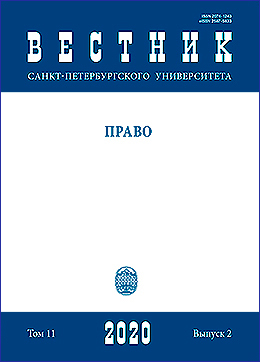Digitalization and its impact on the labour market and employment relations (theoretical and comparative legal aspects)
DOI:
https://doi.org/10.21638/spbu14.2020.210Abstract
The article is based on the study of modern processes in the economy, program documents adopted in Belarus and Russia, comparative legal analysis of the legislation investigated, the concept of digitalization, digital technologies and a number of related concepts. The goal of the article is to understand the concepts of “digitalization”, “digital technologies” and to find out what are the features of the transformations that are occurring in the labor market, individual and collective labor relations in the context of the impact of digital technologies on the labor sphere. The author explores the very concept of digitalization and the relationship with the growth of the economy (industry) 4.0. Programs of digitalization of the economies of Belarus and Russia and their harmonization within the Eurasian Economic Union (EEU) are analyzed. The author explores a wide range of challenges that the global digital transformation creates for the EEU, the economies of the member States, their business entities and citizens. Special attention is paid to the impact of digitalization in the modern economy on the labor market and employment. Digitalization is transforming existing workplaces, requiring new skills from employees to perform new tasks that require continuous improvement of skills, acquiring new knowledge throughout life, skills in using new software, and new automated and robotic technological processes. Such transformations require a rapid retraining of employees or their replacement by employees who already have the appropriate knowledge and skills. The author analyzes the challenges that the digital economy poses to labor law and is influenced in both individual and collective labor relations. Attention is drawn to those innovations that have already become the subject of legislative regulation on the example of Belarus and Russia, as well as those that require an appropriate settlement in the near future.
Keywords:
digitalization, digital technologies, digital economy, labor relations, employees, employers, remote work, freelance, Internet platform
Downloads
References
Downloads
Published
How to Cite
Issue
Section
License
Articles of "Vestnik of Saint Petersburg University. Law" are open access distributed under the terms of the License Agreement with Saint Petersburg State University, which permits to the authors unrestricted distribution and self-archiving free of charge.






